28 Oct Breakout Artist Nala Shares Her Success Story [Exclusive Interview]
Stefania Aronin, known as Nala in the music industry, has blown up over the past year since she signed with Dirtybird Records. The breakout DJ is also a talented singer and producer. Born in the EDM hub of Miami, Nala was destined to be a superstar and is well on her way to headlining major events.
With upcoming performances at Suwannee Hulaween (this weekend) and concerts across the United States, it is important to learn more about this gifted artist. See what Nala has to say about her producing style and motivations, her daily life tips, and her journey through the EDM industry!
What did your previous work consist of and how did it compare to what you are creating now?
The first few songs that I released were very “left field” and experimental. For my first EP, I used the same kind of soundscapes as that of previous experimental work, such as live samples. However, the EP was more song-written and had a down-tempo, indie-pop vibe.
There came a point after I released my first EP when I said to myself, “I actually need to start thinking about what labels I want to be on. I am not going to be able to do this by myself anymore.” This led me to go on a soul-searching journey to discover what music was truly best for me to produce.
For years, I had been a rave DJ plus I started raving when I was 15; I needed to be making the type of music that I play. Along with this, I realized that I can do my own vocals. Now, I was finally able to put together my two lifelong influences. These influences are female-led riot-girl music (such as rock and punk) mixed with dance music.
My work has changed drastically in the sense that I am now making music for clubs instead of making music for myself during the early years of my career.
What made you realize you had finally found your signature sound?
It took a pandemic, doing live streams, and working with Claude VonStroke to figure out what my signature sound was going to be. I had a general idea of my sound when first working with labels due to listening to LCD Soundsystem. This was the sound I wanted to bring with me when I started to produce for other people.
This slowly evolved into tracks like “Sun is Hot”, a song that bridges my older sound and where I am at now. When I created “Psychic Attack” my vision was to yell throughout the track.
The live streams also really helped me find my sound because I was downloading a ton of new music every week. Using these influences I began to create music I really enjoyed, which can be characterized as dark-disco, new-wave, riot girl, punk rock, and electronic. This led to the shaping of the sets that I play today.
What is one specific inflection point you had while you were DJing in the Los Angeles scene which shaped you into the artist you are today?
After moving back to LA post-college, I met DJs Richie Panic, Corey Sizemore, and the rest of the Lights Down Low team. They enabled me to find who I was and I shifted towards the underground scene. Richie Panic worked with me a lot during the pandemic and really helped me craft my sound.
With unique and captivating art pieces featured on your Instagram, what connection do you see between visual art and being a producer/DJ? What are your favorite styles of visual art?
I’m Italian and we have this phrase that translates to “the eye wants its part”. You can have everything but if the eye does not have its piece as well then the package is not complete. My message is very “girl power” so I am intrigued by art that represents that. Art inspires me to push my sound which also attempts to spread my message.
I love Patrick Nagel and other artists that create unique art that depicts and represents women. I also enjoy vintage comics where the main focus is a woman because it tends to be role reversal from the norm. Other vintage and eccentric work will usually catch my attention, such as the movies Pulp Fiction and Fantastic Planet.
What impact do you think having an all-female team has on the EDM industry and young women with aspirations of working in the music industry?
I feel extremely understood by my team and as if I don’t have to explain things to them because they know where I’m coming from. The most important factor in a team is will they work hard for me and can they take me to the next level.
My team is extremely emotionally communicative, stable, and mature, which sets a great example for the rest of the industry. However, I think one’s team should be hired based on credentials and not gender.
What was your initial reaction when you found out your single, “Sun is Hot”, was featured on Billboard’s weekly top new dance tracks?
I felt seen for the first time and it was really validating to be recognized. I did not know what to expect when releasing that EP so I was grateful for that kind of response.
After having played both the Yo! Yo! Girl! and GODDESS events with an all-female lineup, why do you think it’s important for females in your field to stick together and put on more events? How do the two differ from each other?
Looking back, I think it is important to not single anyone out from a show and embrace equality. However, it is great to showcase female talent every once in a while, especially if some of the women are under the radar at that moment. These types of events can be utilized to shine a light on underappreciated women.
Yo! Yo! Girl! is something I created to teach women how to DJ and then book them for their first show. The GODDESS event featured women that had already been established in the EDM scene. Therefore, the caliber of talent was much higher than that of Yo! Yo! Girl!
What does the quote you’ve posted on your Instagram, “I have a head for business and a bod for sin”, mean to you?
The quote is a play on how nightlife is full of debauchery; in order to be successful in it, you need to have your head on straight.
Where did the inspiration behind your Everything Is Burning EP come from? Why are the two tracks so different?
I wrote “Everything Is Burning” in California when the forest fires were happening and I wrote “Wet State” in Florida when it was pouring rain. Both tracks are double-entendres.
The inspiration for “Everything Is Burning” came when I was having roommate issues, living in a chaotic household, and everything seemed to be falling apart. While I was writing this, I was in my friend’s studio on top of a mountain and looking out at the massive fires.
“Wet State” was written when I was on tour with Claude VonStroke. It was very rainy and I was on a low due to being exhausted and lonesome. On a superficial level, they are both about the climate.
I typically like producing my EPs with songs that are polar with one another. This gives one group of listeners one thing and another group of listeners something else. For example, “Wet State” from the EP is more relaxed and intended to be listened to at home while “Everything Is Burning” was made for club play or when working out.
Do you feel influenced by your fans to always play your most popular tracks like “Psychic Attack” and “Everything Is Burning” every set and why or why not?
If I am playing at a big showcase or event, I feel obligated to play my most popular music because that is what people are there for. However, if I am playing at an underground rave, I almost never play tracks such as “Psychic Attack”. Most of the time I will play remixes of my popular tracks during underground sets.
What is your favorite way or platform to interact with your fans and why?
My favorite way to interact with my fans is definitely through Instagram and Twitter. I use Instagram the most but have been tweeting a lot more recently. I love Instagram because I feel like it is the friendliest social platform and the most accepting of one’s opinions.
What specific factor do you look for in a singer you’d like to collaborate with and how much does them having a unique sound or style play a role in your selection process?
They have to have rock sensibility to fit in with my projects. I love finding rock artists and bringing them into the electronic category.
How do you prefer to scout talent to collaborate with after working with Claire Brooks (who you found on SoundCloud) for your single “Gravity”?
When I was independent, I worked with Claire Brooks. I was searching for any way to collaborate with people who I felt sounded amazing and she was one of them. Additionally, I would direct message people on social media for certain projects.
Now that I have the Dirtybird platform behind me, if I come across an underground artist, like Nikki Nair, I will bring them to Claude VonStroke and back them. He will have a conversation with the artist, developing the relationship and utilizing them for specific tracks.
I also have a large network of artists that I am friends with as a result of being affiliated with Dirtybird. This makes it very easy to collaborate with people that understand my sound.
Besides poke bowls, what is your top favorite food and drink to snack on while mixing?
Anything that is in a bowl tends to work best but I have had sushi and tacos (at Dirtybird Campout) as well. Sometimes you just get hungry however I try to keep it light to avoid stomach aches during a set. I dance a lot while I perform so would not be too smart to eat heavier meals.
What Halloween-related IDs will you spin into your set?
I will probably play an unreleased ID I have with Catz & Dogz, one I have with Walker & Royce, and one with Ardalan. Maybe I will play one I have worked on with Nikki Nair too. I have a lot of unreleased tracks right now so it depends on which IDs I feel are most fitting at the time.
How do you aim to change the way society views women and what is the ideal image you want women to be viewed as?
I just want women to be seen as the same as men. There is no first or second place; we are all literally the same. The only thing that makes us different is the way we approach life. This is something I have been crusading on lately. Things have changed a lot over the past decade and we are no longer seeing the majority of women taking on the “housewife” role.
Now that there is such a high percentage of women in the workforce it is cool to say “yeah, we have always been able to work.” Even with dating, we are just as sexually inclined as men.
Not all women are looking for marriage and kids; some are simply looking for a casual relationship while focusing on their careers. As a society, we need to realize that every characteristic we have attributed to men can be attributed to women as well.
Even though streaming platforms have hurt the music market in terms of revenue for musicians, do you think they have helped you expand your fan base and exposure? Why or why not?
I call making music in today’s economy “a donation to other industries.” Although we no longer make money off our music due to streaming platforms, they help give us the ability to tour and sell merch. It is unfortunate that you can no longer directly profit off your music but fortunate that you can make money in other ways.
What is your opinion on NFTs? Which ones do you own and do you think they are a reliable long-term investment?
I imagine that they are here and are going to stay for a long time; I also do not think cryptocurrency is going anywhere soon. Based on how many people are making money from it, I think it can be a good investment to get into.
I have one of the Dirtybird Flight Club NFTs but am not sure what to do with it besides appreciating the artwork.
What is your top self-care tip?
I actually have a few important self-care tips. One crucial tip is therapy. Sometimes weekly, sometimes biweekly, and even once a month depending on where you are at in your life.
Regular messages, like sports massages, are definitely useful, especially if you are a touring act. You can really quickly damage your muscles and might end up with a cane like Ardalan was during Dirtybird Campout. In general, I think self-care is vital to having a happy and healthy lifestyle.
Besides the pandemic, what has been the toughest challenge the industry has forced you to overcome?
The toughest challenge for me was convincing people to trust and have faith in me that I could showcase my talent and move up the ranks. I was fighting against the current for years; for a long time, I had to push people to accept that I existed.
Finally, I met Claude VonStroke who became a mentor for me. He was the first person that gave me a real chance and I ran with it.
There is a ton of asking and demanding when starting out as a DJ. Asking for your paychecks, asking for better time slots, and asking for bookings are all required.
Eventually, I got to a point where the local communities of LA, NYC, and Miami were very welcoming to me. I could play local gigs whenever I was in those cities.
Why do you think your preference for melodic sounds has shifted to more distorted and metallic ones?
I think I have a lot more anger and aggression than I used to. What I mean by this is that I am always ready to rage. I still write melodic tracks that reflect when I feel a little upset or lonesome. However, I find comfort in the aggressive metallic sounds and distorted ones too.
What is your relationship with Claude VonStroke like? How has he changed your perceptions on producing or the EDM industry as a whole?
Claude VonStroke came into the picture as an A&R (artists and repertoire; talent discovery) and a mentor. He showed me what works and what doesn’t. Up until I met him I had never been taught production, everything I knew I had learned on my own.
It was great to work with someone like Claude, with over 20 years of DJing and production expertise. He helped me better my club performances and his wife Aundy taught me how to market myself. Claude is the “yes/no man” in my life. He advises me whether something sounds great or if something could sound better.
What was your favorite memory from the weekly after-hours live stream event TV Party?
I loved how happy the live stream made Richie Panic. We never knew what was going to happen. Richie Panic still says how much he misses having an outlet to DJ whatever he wants each week.
Stay updated with Nala, her latest releases, and follow her on Instagram and Twitter.

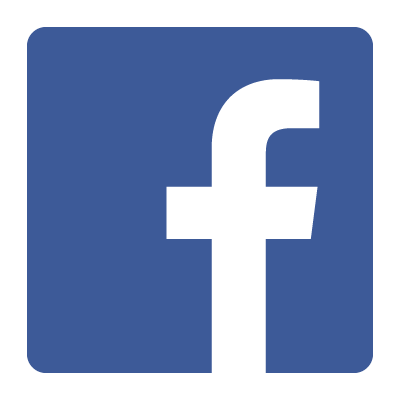
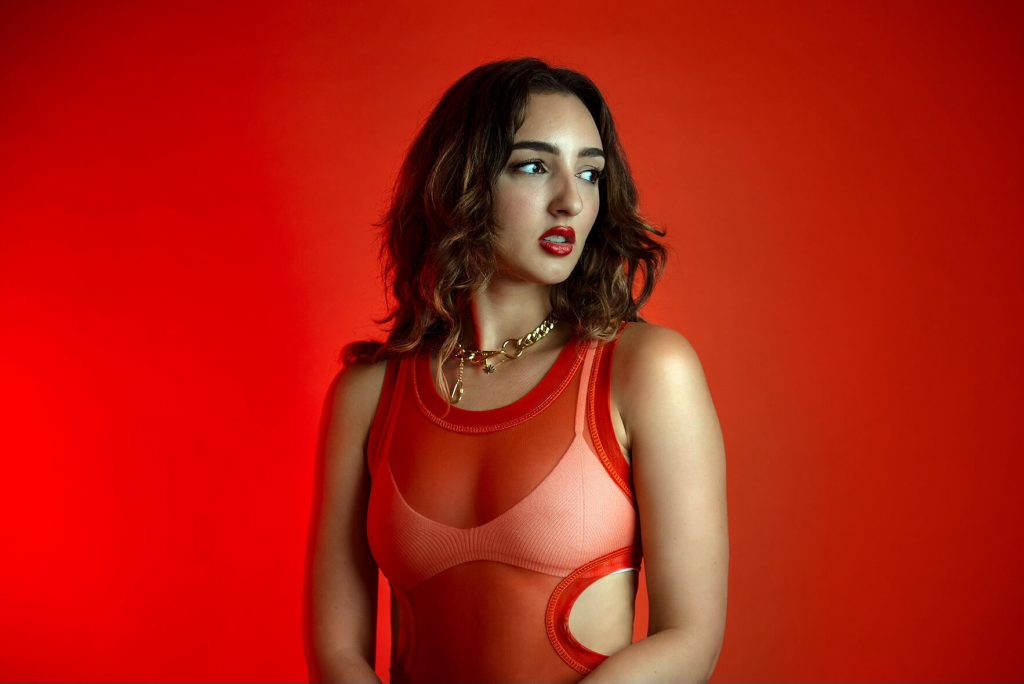
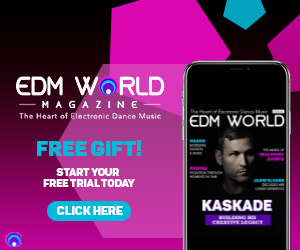
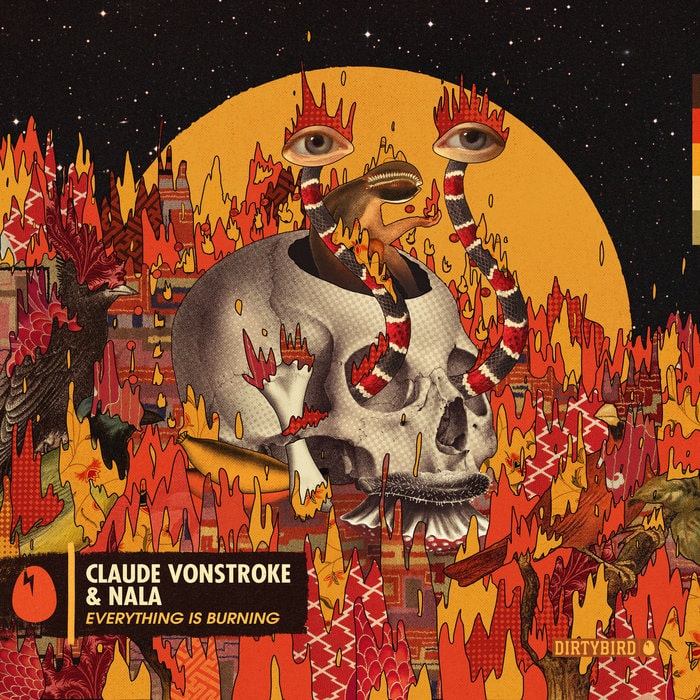
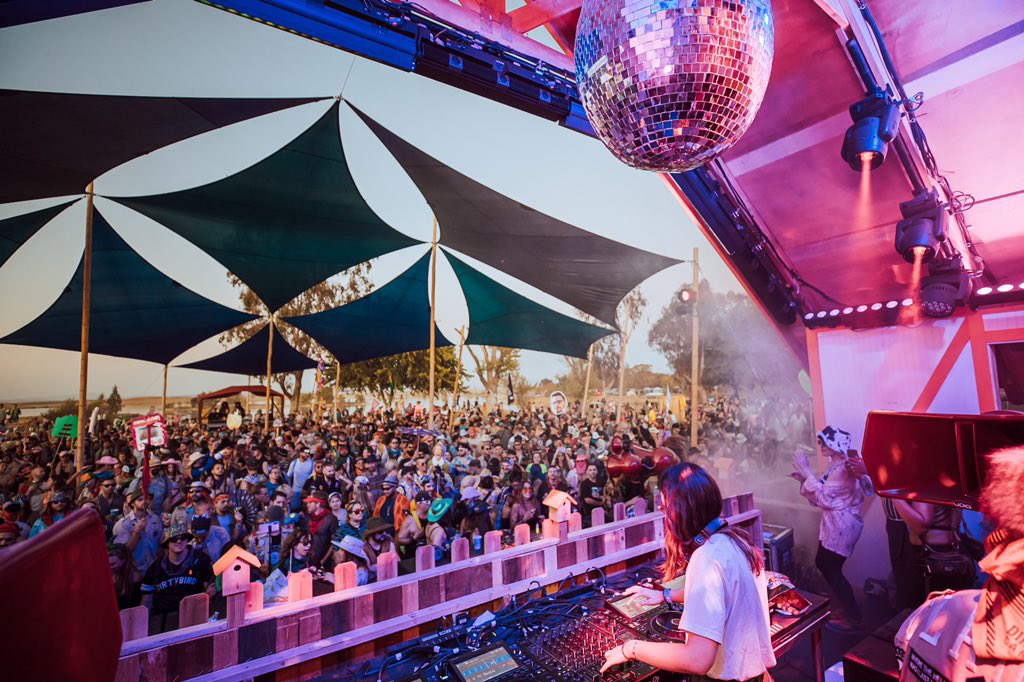
No Comments